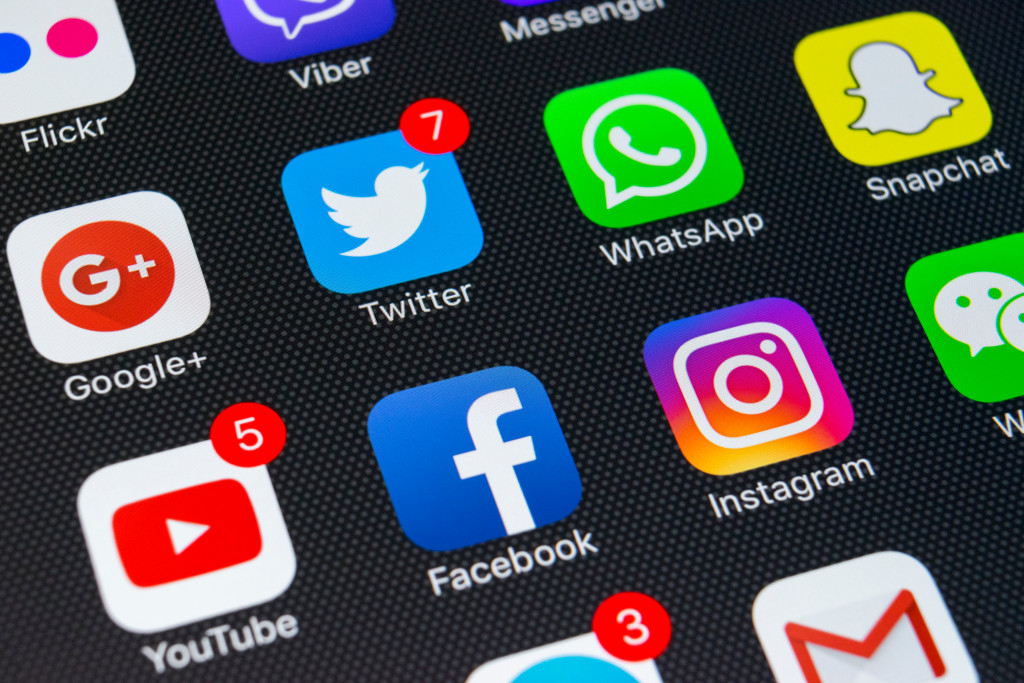• Constant use of social media can lead to feelings of anxiety, depression, and envy. You might consider taking a break.
• Staring at screens all day can lead to digital eye strain, which causes symptoms like headaches and neck pain.
• Using screens can disrupt your sleep cycle. To ensure quality rest, avoid using screens for at least an hour before bedtime.
• Poor posture caused by excessive phone usage can lead to back and neck pain. Consider investing in a standing desk.
• Social media can negatively affect your social life by making it difficult to engage in meaningful face-to-face conversations.
It’s no secret that social media can have a negative impact on our mental health. But did you know it can also affect your physical health in many ways? Here are different ways that social media can damage your health.
It Affects Your Mental Health
The constant stream of information and notifications can lead to feelings of anxiety and overwhelm. Social media can also fuel comparison and envy, leading to low self-esteem and depression. If you feel down after scrolling through your feed, it might be time to take a break from social media.
It Affects Your Eye Health
Staring at a screen all day can lead to digital eye strain, which causes symptoms like dry eyes, headaches, and neck and shoulder pain. Take breaks every twenty minutes to look at something else to reduce the risk of digital eye strain. And when you’re on your devices, try to maintain a good distance between your eyes and the screen.
If your eyes are already too damaged, consider seeking the help of a professional LASIK surgeon. LASIK is a type of eye surgery that can correct vision issues and reduce your dependence on glasses or contact lenses. A good LASIK surgeon will use advanced technologies and techniques to help you get the best possible results.
It Affects Your Sleep Quality
Using screens before bed can disrupt your sleep cycle by suppressing melatonin production. This hormone helps you feel sleepy. If you find it hard to fall asleep at night, try avoiding screens for at least an hour before bedtime.
It Affects Your Posture
Constantly looking down at your phone puts a lot of strain on your neck and shoulders, leading to tension headaches and pain in the upper back and neck region. To avoid this, hold your phone at eye level when using it. But if you’re posture is already bad due to years of improper phone or computer usage, don’t worry! There are plenty of easy steps you can take to correct your posture. Here’s what you should do:
Get up and move around throughout the day
Getting up and moving around every thirty minutes or so can help reduce tension in your neck and shoulders. You can even set reminders to remind yourself to take a break.
Practice good posture
Good posture not only helps you look taller and slimmer but also reduces tension in your neck and shoulders by distributing the pressure more evenly. Make sure that you keep your back straight, head up, and shoulders relaxed when you’re sitting or standing.
Invest in a standing desk
If you work in front of a computer all day, investing in a standing desk can be beneficial. Studies show that people who use standing desks are more productive and have better posture as opposed to those who sit all day.
Invest in an ergonomic chair
Ergonomic chairs are designed to reduce tension in the back and neck region. They also provide support for your spine, which can help alleviate pain caused by poor posture.
By taking the proper steps to correct your posture, you can help reduce pain and discomfort in your neck, shoulders, and back.
It Affects Your Social Life
Spending too much time on social media can make it difficult to engage in meaningful face-to-face conversations. Excessive scrolling can also lead to feelings of isolation and loneliness. To ensure that you’re not missing out on meaningful social interactions, try to limit your time spent on social media and commit to spending more time with family and friends.
It Can Lead to Cyberbullying
Cyberbullying is a serious problem, especially among young people. According to recent studies, cyberbullying has been linked to anxiety, depression, and even suicidal thoughts in some cases. If you or someone you know is being cyberbullied, reach out to a trusted adult or counselor for help.
Social media can have a severe impact on our physical and mental health, but it doesn’t mean that we should stay away from it altogether. By making minor adjustments to your behavior, like taking regular breaks, practicing good posture, and limiting screen time before bedtime, you can reduce the harmful effects of social media on your well-being. Furthermore, if you or someone you know is being cyberbullied online, don’t hesitate to ask for help as soon as possible.


